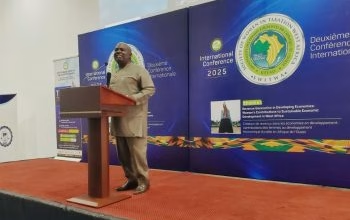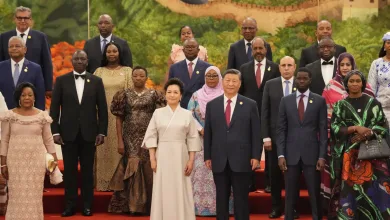Ghana places 8th in Africa with largest private infrastructure investment

- Ghana ranks 8th in Africa with $137 million in private infrastructure investment.
- South Africa tops the list with $1.044 billion, followed by Senegal and Tanzania.
- Energy and ICT sectors receive the most investment.
Ghana placed 8th in Africa with the largest private infrastructure investment worth $137 million, according to the World Bank Private Participation in Infrastructure (PPI) 2023 Annual Report.
The largest contributor to the region’s PPI was South Africa with investments of $1.044 billion. It was responsible for 30.0% of the regional PPI. Senegal ($316 million) and Tanzania ($308 million) followed in second and third positions, respectively.
The sector receiving the largest share of PPI was energy, followed by the ICT sector.
The Eastern and Southern (AFE) reported investment commitments of $2.3 billion across 45 projects. While investment levels remained stable from the previous year, the number of projects reaching financial closure more than doubled to 45 in 2023.
The Western and Central (AFW) region also reported investment commitments of $1.2 billion across 21 projects in 2023. Senegal reported the highest level of investment commitments, accounting for almost 27 percent of the total investment commitments, with five projects worth $316 million.
The five countries with the highest levels of investment in 202₃ as a percentage of national GDP were Cape Verde, with 7.4% of its Gross Domestic Product committed to PPI investments; Lao People’s Democratic Republic (Lao PDR), with 6.2% and Bosnia and Herzegovina with 2.0%.
Ghana, however, undertook only one infrastructure project according to the report.
Private infrastructure investment has enormous potential for addressing the infrastructure deficit in low- and middle-income nations, particularly African countries.
Private investors offer cash, expertise, and flexibility to infrastructure development, augmenting public funds and easing fiscal limitations. Furthermore, their profit-driven strategy promotes accountability and encourages innovation, resulting in cost-effective and high-quality infrastructure solutions.
A lack of infrastructure may be a major obstacle to Africa’s growth, hindering industrialization and making it more difficult to access basic services. Fortunately, this is a problem that private investors have taken an interest in, and over the years they have made significant contributions.






